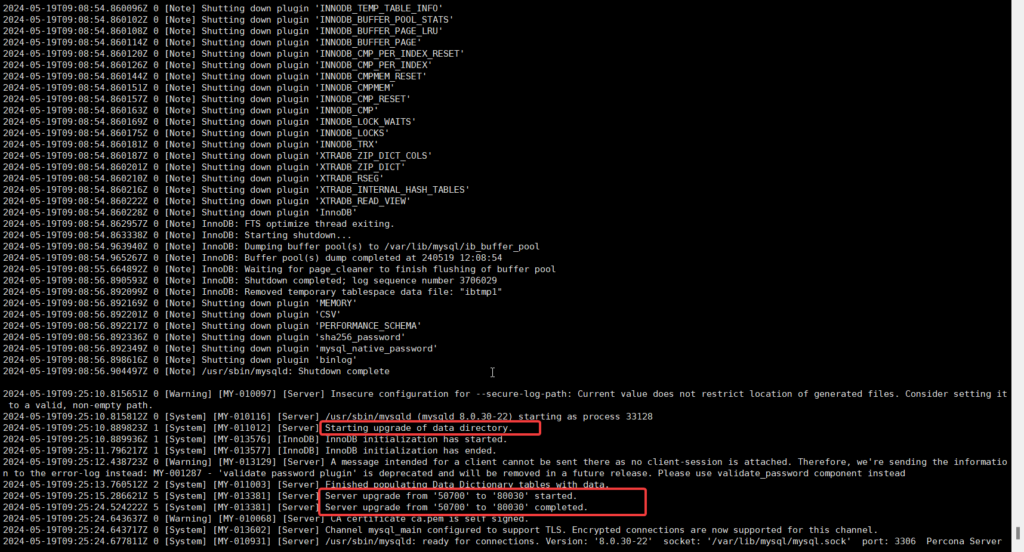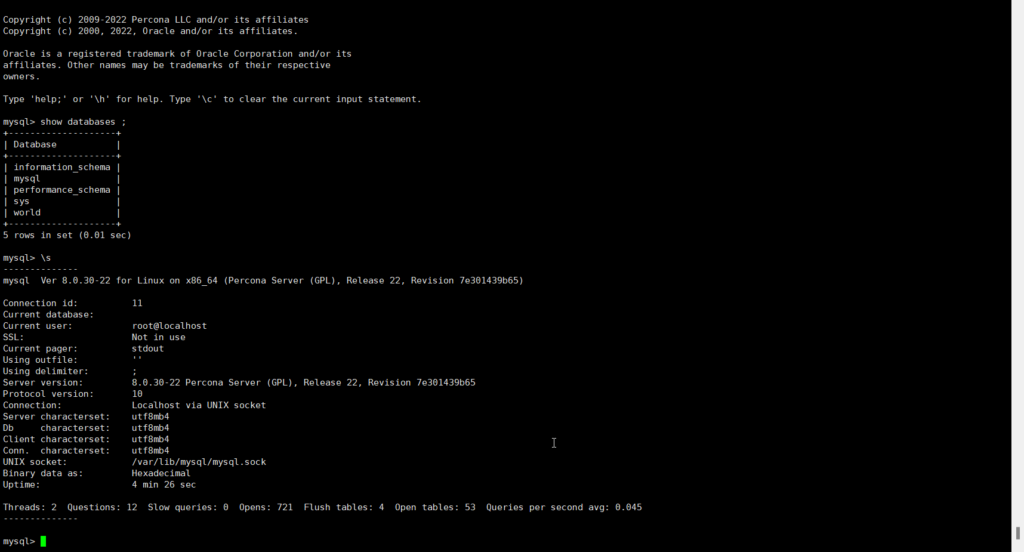there are two types of upgrades
- Minor MySQL Version Upgrade
- Example : upgrade from 8.0.28 to 8.0.30
- Major MySQL Version Upgrade
- Example : upgrade from 5.7 to 8.0
Minor Version Upgrade
The first step when performing a minor version upgrade is to obtain the current version of MySQL and the newer minor upgrade available.
To get the current version of MySQL on Red Hat, we use the following command, which queries the RPM package:
rpm -qa | grep -i percona

To obtain the newer version, we can check the Percona website and see which is the latest version released.
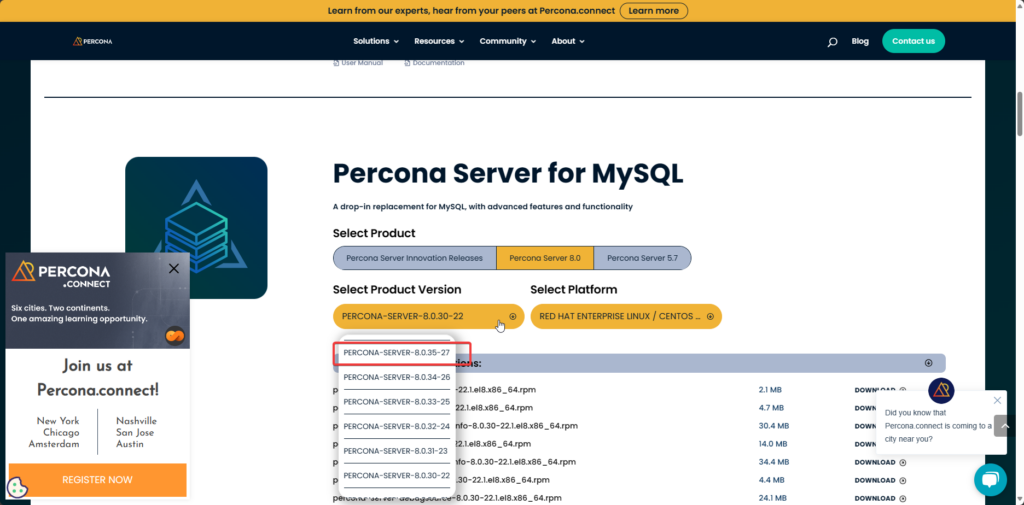
To summarize our current setup, we are running Percona MySQL 8.0.30 and aiming to upgrade it to version 8.0.35
To begin, we will obtain the new version for Percona Server and Percona Server Client from the Percona website. We can directly download the packages using the wget command.
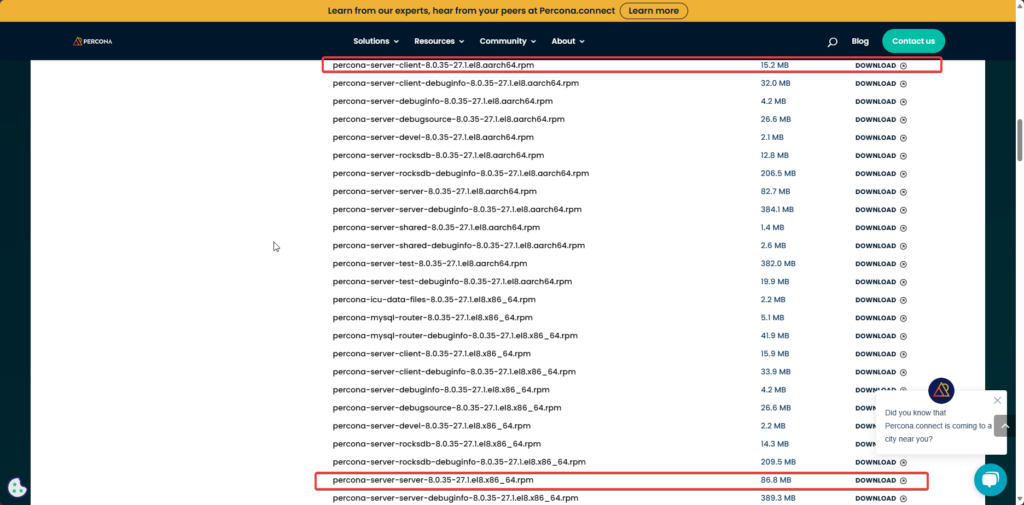
i will copy the link for download and past it along side wget command to download the package on VM
wget https://downloads.percona.com/downloads/Percona-Server-8.0/Percona-Server-8.0.35-27/binary/redhat/8/x86_64/percona-server-client-8.0.35-27.1.el8.x86_64.rpm?_gl=1*14grt98*_gcl_au*MTA0Mzk1MDYyOS4xNzE1NjkwMzk5
wget https://downloads.percona.com/downloads/Percona-Server-8.0/Percona-Server-8.0.35-27/binary/redhat/8/x86_64/percona-server-server-8.0.35-27.1.el8.x86_64.rpm?_gl=1*14grt98*_gcl_au*MTA0Mzk1MDYyOS4xNzE1NjkwMzk5
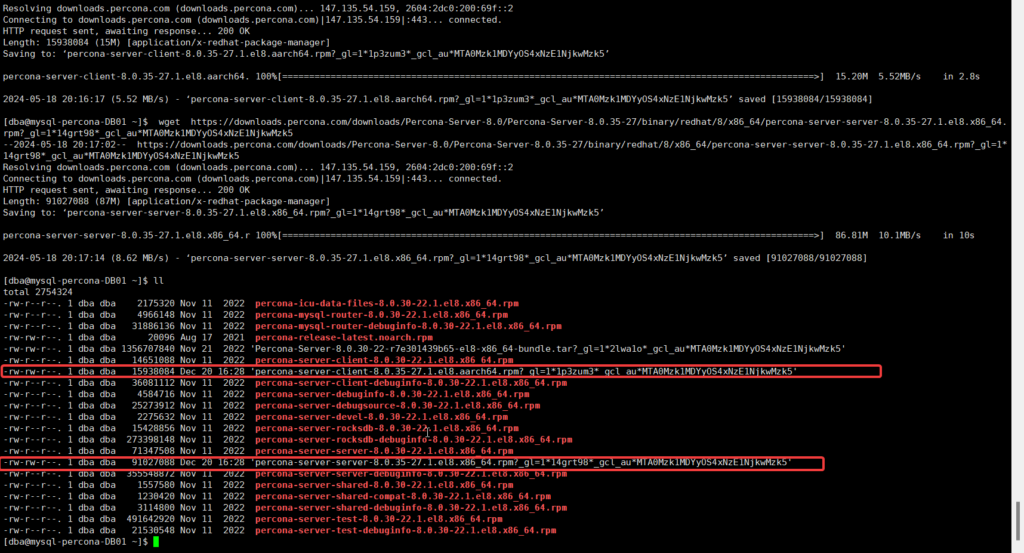
the file will be download compressed in at format , we will use command tar -xf [filename] to extract the file
tar -xf percona-server-client-8.0.35-27.1.el8.aarch64.rpm?_gl=1*1p3zum3*_gcl_au*MTA0Mzk1MDYyOS4xNzE1NjkwMzk5
tar -xf percona-server-server-8.0.35-27.1.el8.x86_64.rpm?_gl=1*14grt98*_gcl_au*MTA0Mzk1MDYyOS4xNzE1NjkwMzk5
next step which is very important is to stop MySQL services
systemctl stop mysqld
systemctl status mysqld

now we will start installing the package using yum localinstall
sudo yum localinstall percona-server-client-8.0.35-27.1.el8.x86_64.rpm



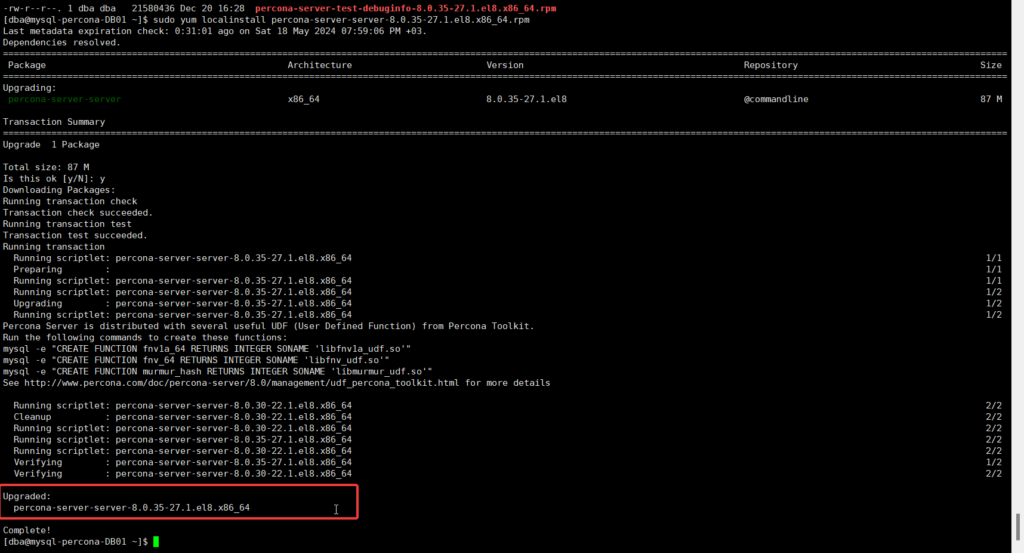
The minor upgrade has completed successfully, and we can now start the MySQL service.
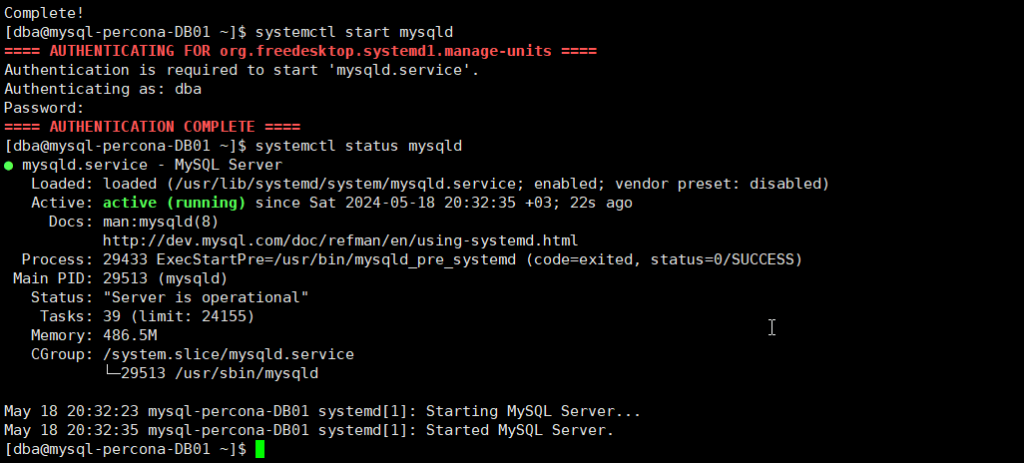
Major MySQL Version Upgrade
reference link
For a MySQL major version upgrade, the process typically involves installing the desired major version first, such as MySQL 5.7, and then performing the upgrade to version 8.
we can use the below script to install MySQL 5.8
PERCONA REPO
sudo yum -y install https://repo.percona.com/yum/percona-release-latest.noarch.rpm
ENABLE 5.7 REPO
sudo percona-release setup ps57
INSTALL MYSQL 5.7
sudo yum -y install Percona-Server-server-57
VERIFY MYSQL 5.7
rpm -qa | grep -i percona
START MYSQL
sudo systemctl start mysqld.service
GRAB ROOT PASSWORD AND RUN SECURE INSTALLATION
grep temp /var/log/mysqld.log
mysql_secure_installation
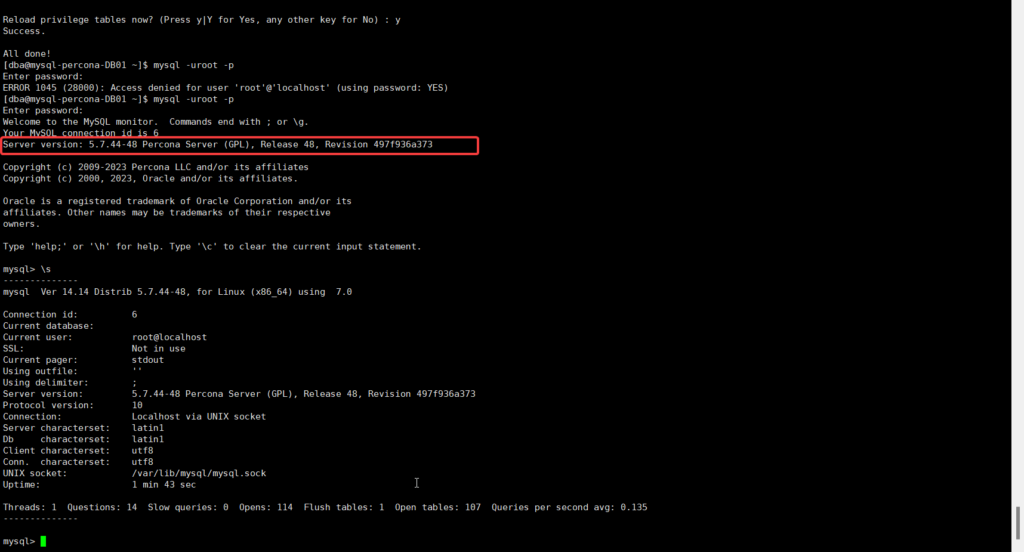
For testing purposes, we’ll replicate the real-world example database on the server to simulate the upgrade in a more realistic manner. You can execute the following command to download the database and then import it into the MySQL server.
wget https://downloads.mysql.com/docs/world-db.tar.gz
tar -xf world-db.tar.gz
cd world-db/
mysql -uroot -p < world.sql

1- MySQL upgrade checklist
first thing we need to confirm that all the data in the database and all tables are in proper format
we can use the mysqlcheck utility
mysqlcheck -uroot -p --all-databases --check-upgrade

The command will verify all tables in the database to ensure their compliance with the current version, checking for any errors or inconsistencies.
2- mysqlsh script – Pre-Upgrade Check
There is actually a MySQL script, designed by Oracle, that checks whether the current version is compatible with the MySQL upgrade process.
you can follow the steps in this link You’ll download MySQL Shell and run a script that assesses whether upgrading from the current version to MySQL 8 is feasible.
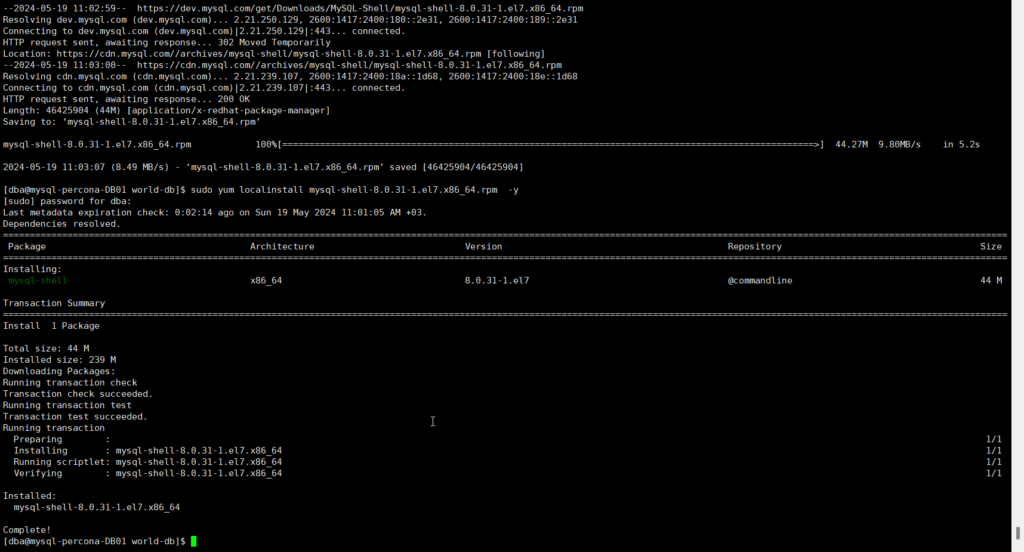
mysqlsh is installed and now we will run the script provided by oracle to check upgrade combability
mysqlsh -- util check-for-server-upgrade root@localhost --target-version=8.0.30 --output-format=JSON --config-path=/etc/my.cnf
The concern is ensuring that the report generated by the script does not contain any errors.
you may receive a warning regarding mysql_native_authenticating which will be deprecated in newer MySQL versions, so keep this in mind and make sure that the MySQLl server you want to upgrade does support mysql_native_sql, otherwise you will have to change the user to authenticate via caching_sha2_password
3- Dumping the Database
It is highly recommended to create a full database dump before you perform any upgrade. This guarantees that you have a backup of your data in case something goes wrong during the upgrade process and you need to restore it.
To create a database dump, you can use the mysqldump utility. Here’s an example command:
mysqldump -u root -p --all-databases > all_databases.sql
This command will create a file named all_databases.sql that contains a dump of all databases on the server.”””
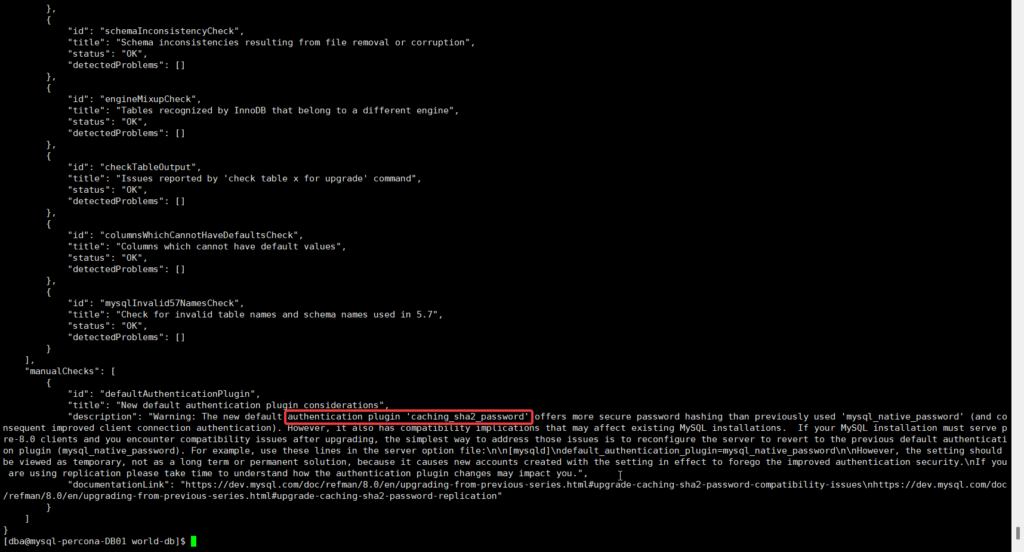
Perform MySQL Major Version Upgrade
now we will start by downloading the mysql package
but before that let’s first verify which package are installedrpm -qa | grep -i percona

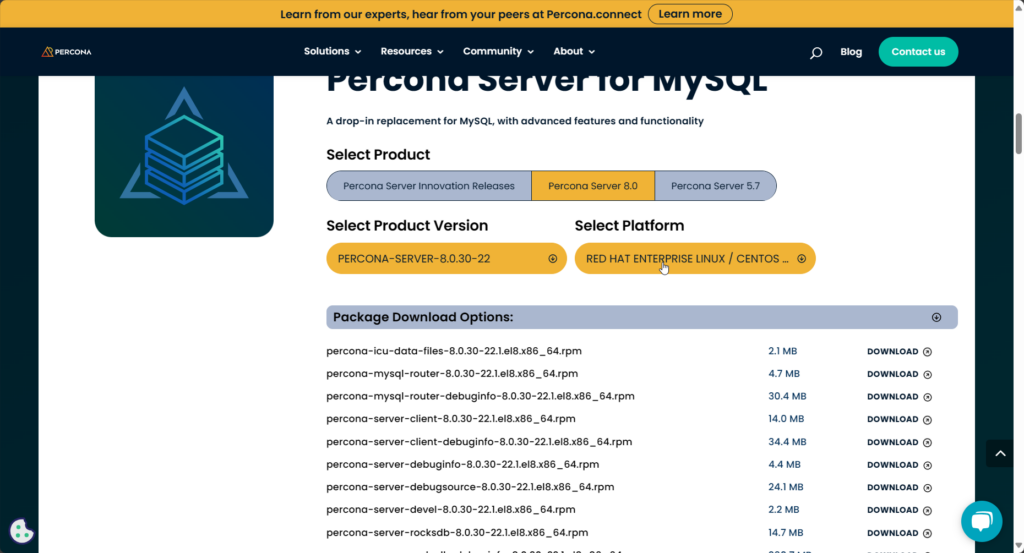
we will download the package first
wget https://downloads.percona.com/downloads/Percona-Server-8.0/Percona-Server-8.0.30-22/binary/redhat/8/x86_64/Percona-Server-8.0.30-22-r7e301439b65-el8-x86_64-bundle.tar?_gl=1*1hchtzx*_gcl_au*MTA0Mzk1MDYyOS4xNzE1NjkwMzk5
tar -xf Percona-Server-8.0.30-22-r7e301439b65-el8-x86_64-bundle.tar?_gl=1*1hchtzx*_gcl_au*MTA0Mzk1MDYyOS4xNzE1NjkwMzk
now stop mysqld services
systemctl stop mysqld
remove MySQL 5.7 from system
sudo yum remove Percona-Server-shared-compat-57-5.7.44-48.1.el8.x86_64 -y
sudo yum remove Percona-Server-shared-57-5.7.44-48.1.el8.x86_64
Removing ‘shared’ and ‘shared-compat’ will uninstall both the MySQL Server client and the MySQL Server itself.
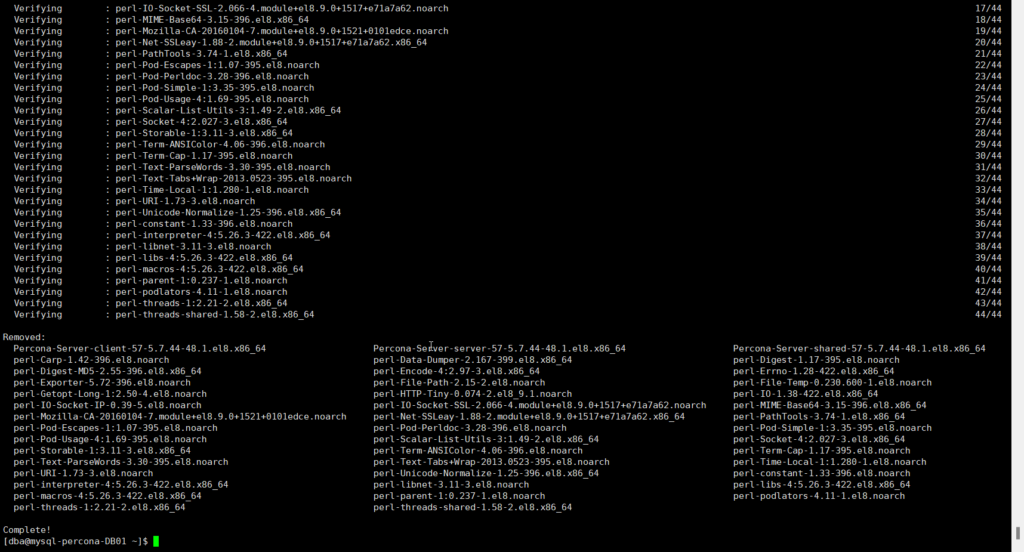
now we will install mysql 8 on system
sudo yum localinstall percona-server-shared-8.0.30-22.1.el8.x86_64.rpm
sudo yum localinstall percona-server-shared-8.0.30-22.1.el8.x86_64.rpm
sudo yum localinstall percona-icu-data-files-8.0.30-22.1.el8.x86_64.rpm
sudo yum localinstall percona-server-client-8.0.30-22.1.el8.x86_64.rpm
sudo yum localinstall percona-server-server-8.0.30-22.1.el8.x86_64.rpm
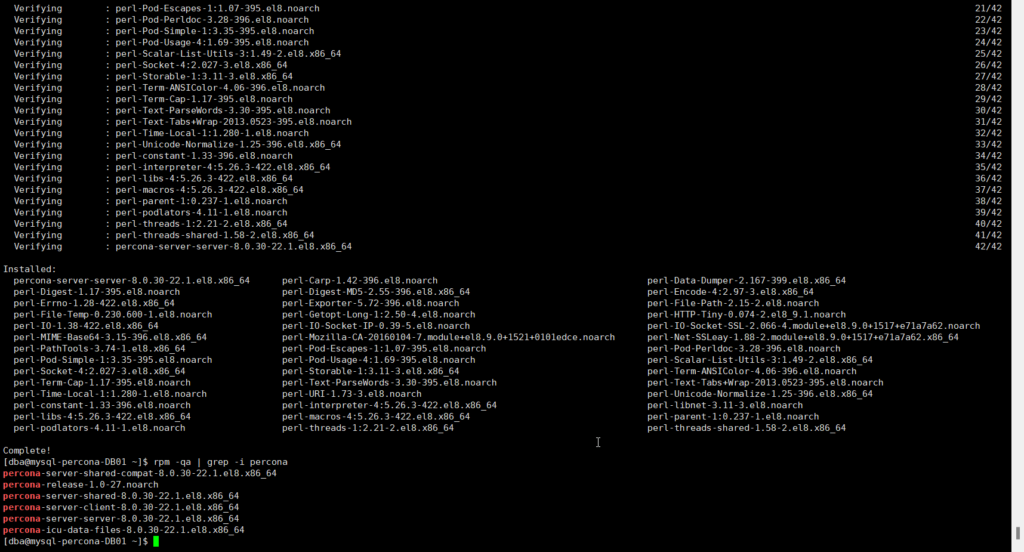
Before initiating the upgrade process, you need to start MySQL with the upgrade option. Upon starting mysqld with the upgrade option, from version shared-8.0.16 onwards, it will conduct a check on all binary and data files, initiating the upgrade process as necessary.
systemctl start mysqld
You can monitor the progress of the upgrade process by checking the log files, which will provide insights into how the upgrade process is proceeding.
sudo cat /var/log/mysqld.log
